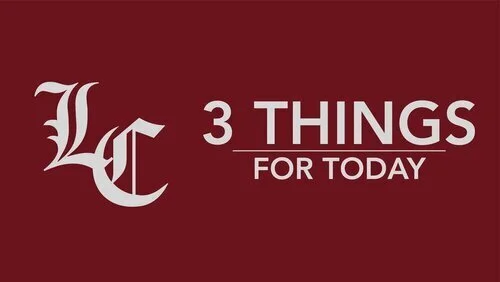Three things for October 11
1. Navy nuclear engineer and wife charged for attempted espionage
On Sunday, Oct. 10, court documents revealed that Jonathan Tobbees, a U.S. Navy nuclear engineer, and his wife were charged with attempting to expose U.S. secrets on submarine technology to another country, the New York Times reports.
Authorities began looking into Tobbees in Dec. 2020 when the Federal Bureau of Investigation was sent a package containing U.S. Navy documents, a letter and details on how to contact the person sending the package. Even though the FBI received the package in Dec., the foreign country originally received the package in April 2020.
The FBI began to communicate with Tobbees, going undercover as spies for the foreign nation, according to the Washington Post. The agents convinced Tobbees to send them the information through three separate dead drops, discreet hiding places spies use to drop and pass off information. Tobbees requested to be paid for the information through cryptocurrency.
Tobbees’ wife, Diana, appeared to keep watch as Tobbees placed one of the dead drops.
The couple was arrested on Saturday, Oct. 9, and will go to court in West Virginia on Tuesday, Oct. 12.
2. Four fatalities reported in plane crash near Atlanta
On Friday, Oct. 8, a single-engine plane with four people aboard crashed and caught on fire, resulting in all four people’s deaths.
The plane crashed close to 1:10 p.m. at the DeKalb-Peachtree Airport in Chamblee, GA, only seconds after the plane’s initial takeoff, the Atlanta Journal-Constitution reports.
As of Sunday, Oct. 10, Jonathan Rosen, CEO of Entaire Global Companies, is the only victim whose identity has been confirmed. Owner and pilot Rosen and his passengers are believed to be his 14-year-old niece, a family friend and another child.
The remains of the plane will be analyzed and its engine and systems reviewed, along with checking the plane’s weight, service history and pilot qualifications, said National Transportation Safety Board investigator Daniel Boggs.
A full investigation into the crash could take up to two years, AP News reports.
3. California to require free hygiene products in public schools and colleges
On Friday, Oct. 8, a bill was signed into law requiring California public schools to provide free period products in restrooms, AP News reports.
The legislation called the Menstrual Equity for All Act will go into effect in the 2022-2023 school year and will impact public school students in grades 6-12, community colleges and the California State University System.
The act expands on a 2017 law requiring low-income schools to provide pads, tampons and other menstrual items, AP News reports.
“Just as toilet paper and paper towels are provided in virtually every public bathroom, so should menstrual products,” said Christina Garcia, the Democratic Assembly woman who introduced the bill.



